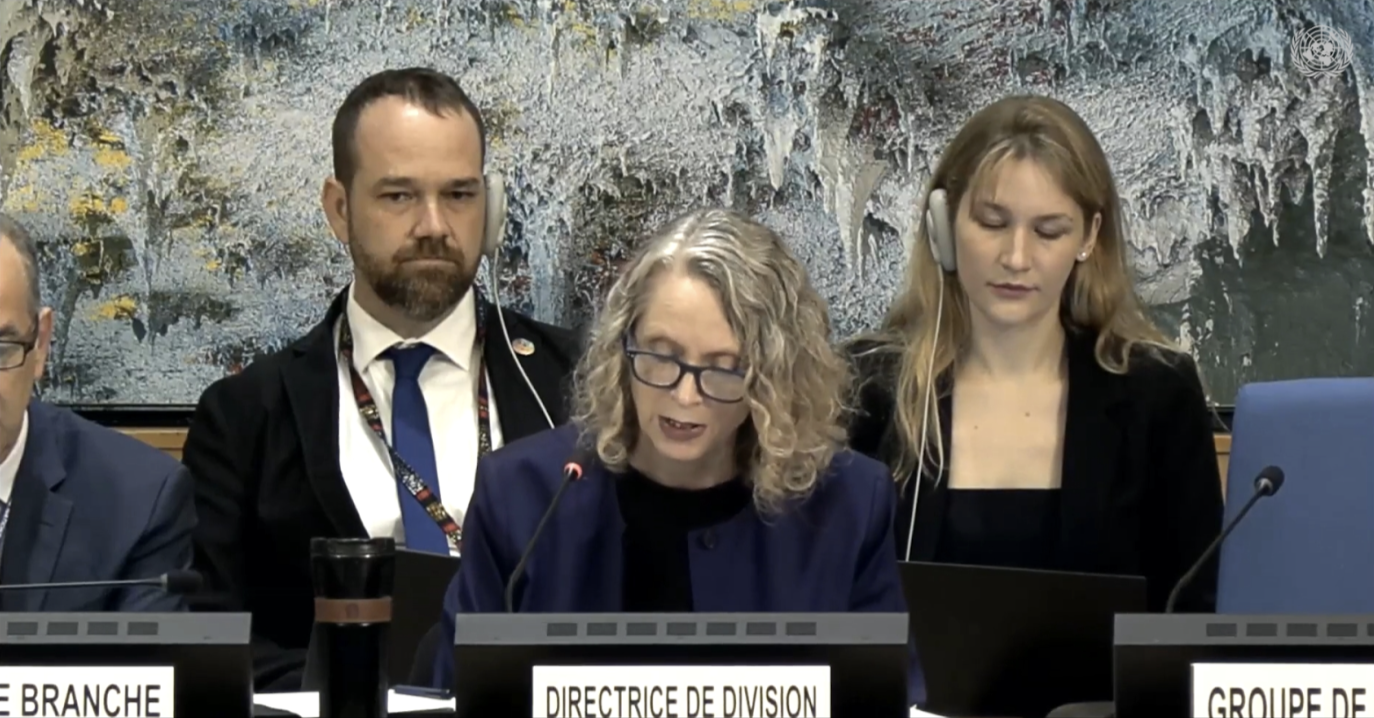
Climate Crisis Demands Rights-Based Due Diligence
The 60th Session of the Human Rights Council
8 September - 8 October
Item 3: Interactive dialogue on the Secretary-General's synthesis report on climate change
17 September 2025
By Mihretab Mekonnen Beyene/ GICJ
Executive Summary
The 60th Session of the Human Rights Council convened an Interactive Dialogue on the Secretary-General's synthesis report (A/HRC/60/52). The consensus unequivocally categorised the climate crisis as an existential threat to the realisation of all human rights, including those of a non-derogable nature, thereby mandating an urgent rights-based governance paradigm for the Just Transition. The core discourse reinforced the non-derogable legal obligation of States, recognised as the primary duty bearers erga omnes, to prevent foreseeable climate harms. This obligation is now robustly supported by definitive advisory jurisprudence from international judicial bodies. Delegates consistently emphasised the structural asymmetries and systemic marginalisation that generate the disproportionate and foreseeable vulnerability of rights-holders. The debate crystallised the need for the phase-out of fossil fuels to be fundamentally rooted in substantive equality, ensuring the securing of decent work and comprehensive social protection, transcending mere economic adjustment. Geneva International Centre for Justice (GICJ) maintains that securing climate resilience is inseparable from fulfilling fundamental international justice mandates. We call upon States to immediately transition from rhetorical commitment to obligatory compliance, operationalising the principles articulated in the Secretary-General's report by integrating substantive and procedural human rights into all climate governance frameworks and establishing robust, effective remedies and redress mechanisms for loss and damage.
Background
The established link between climate change and human rights has become a central priority for the Council, driven by the understanding that climate impacts function as a profound threat multiplier, resulting in the retrogressive enjoyment of a comprehensive range of human rights. The concept of Climate Justice emphasises the structural asymmetry of the crisis: those communities bearing the disproportionate brunt of the crisis-despite contributing minimally to global emissions-are the rightful subjects of international protection and solidarity. Recent advisory jurisprudence, notably from the International Court of Justice and the Inter-American Court for Human Rights, has definitively adjudicated that persistent State inaction regarding climate change amounts to an internationally wrongful act under the regime of State responsibility. This jurisprudence establishes a non-derogable legal imperative for enhanced due diligence and the consistent application of the precautionary principle in all harm prevention strategies. Consequently, the discussion at HRC60 focused critically on the Just Transition-the requirement for a systemic, fair, and inclusive transformation of global economies that unconditionally upholds human dignity and actively avoids the exacerbation of pre-existing inequalities.
Summary of Expert’s Report (A/HRC/60/52)
The Synthesis Report of the Secretary-General (A/HRC/60/52) provided the authoritative framework, defining the Just Transition as a move towards environmentally sustainable economies and societies that are equitable, inclusive, and fundamentally human rights-centred. The report emphasised that States, as principal duty bearers, must exercise enhanced due diligence in compliance with their legal obligations. Crucially, this requires recognising and fulfilling their extraterritorial obligations, which carry erga omnes implications. These obligations mandate States to ensure their financial and production systems do not cause foreseeable human rights harm outside their borders through high emissions or exploitative resource extraction. Furthermore, the report demanded the necessity of systemic deconstruction of prevailing economic models, which structurally prioritise Gross Domestic Product (GDP) and short-term financial metrics over planetary boundaries and human well-being. It noted that reliance on fossil fuels and the intensifying geopolitical competition for critical transition minerals frequently perpetuate human rights abuses and conflict, necessitating a structural overhaul of global economic incentives and investment patterns. A human rights-aligned Just Transition must robustly centre the principles of substantive equality and non-discrimination, ensuring that transition costs are equitably distributed and that vulnerable groups-including Indigenous Peoples, women, persons with disabilities, and low-income workers-are guaranteed protection. The report outlined concrete Actionable Solutions focused on securing dignified work, guaranteeing social security, strengthening governance through transparency and institutional accountability, and enhancing international cooperation through the urgent provision of adequate, predictable, and new and additional climate finance from developed nations to the developing world.
Summary of the Interactive Dialogue
The Interactive Dialogue was marked by a widespread and unequivocal acknowledgement of the report's framing of climate action as a non-negotiable human rights imperative.
Opening statement

Volker Türk, the United Nations High Commissioner for Human Rights (OHCHR), delivered a seminal statement, characterising climate change not merely as an environmental challenge but as an existential human rights crisis. The OHCHR advocated for the necessity of structurally pivoting global policy toward a "Human Rights Economy," where development metrics prioritise planetary and human well-being. This pivot must uphold the principle of non-retrogression regarding existing social protections. They underscored the critical importance of accountability for past and ongoing harms, arguing that populations disproportionately affected by climate impacts may be entitled to full reparations and restorative justice under international law. The intervention stressed the need for radical transparency in all mitigation and adaptation finance. Subsequently, the Special Rapporteur on on Climate Change and Human Rights, Ms. Elisa Morgera, welcomed the high level of engagement from Member States, reinforcing the strong convergence on the need for systemic change and reiterating that the Just Transition is a non-derogable, rights-based obligation.
Statements of Groups of States
Statements by key Groups of States highlighted critical geopolitical and ethical divisions surrounding finance and responsibility.
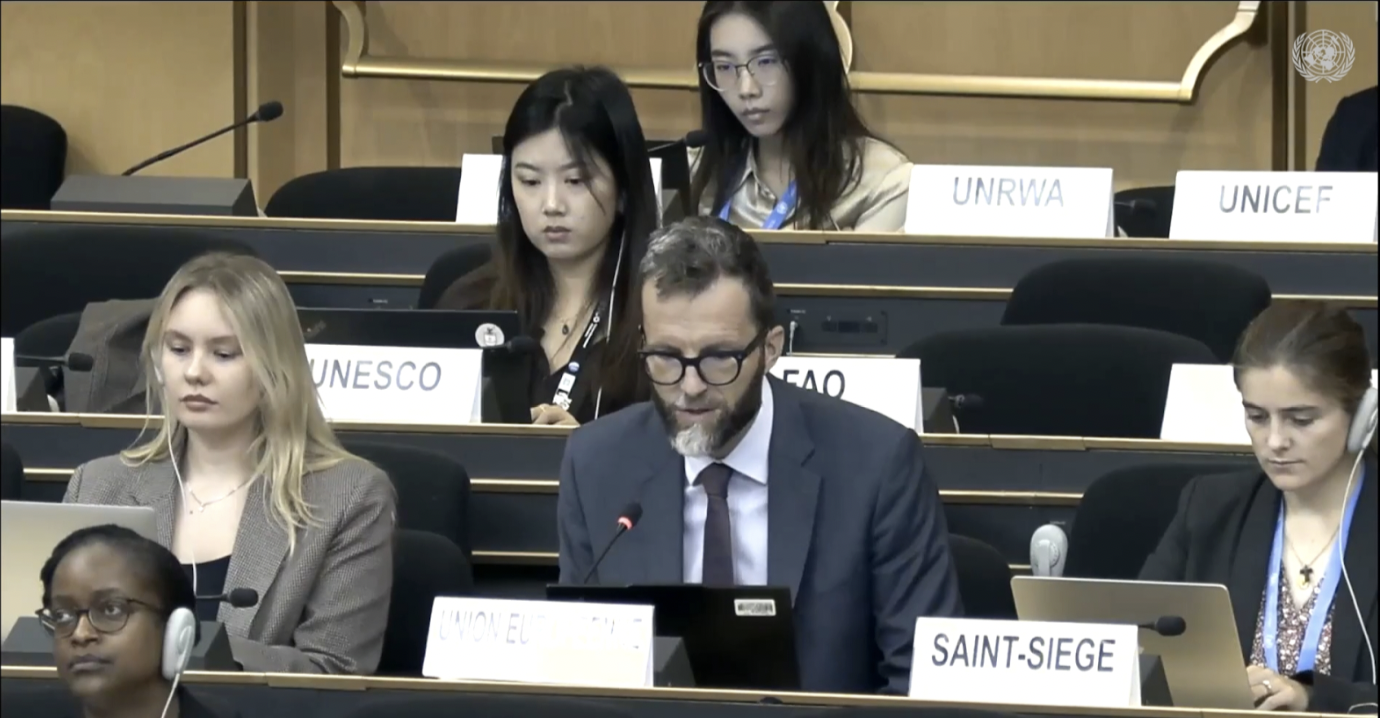
The European Union (EU) affirmed its commitment to climate finance and cooperation, reiterating the fundamental principles of universality, indivisibility, and interdependence of all human rights as the guiding template for sustainable development. The EU emphasised the importance of safeguarding participatory rights in national climate planning.
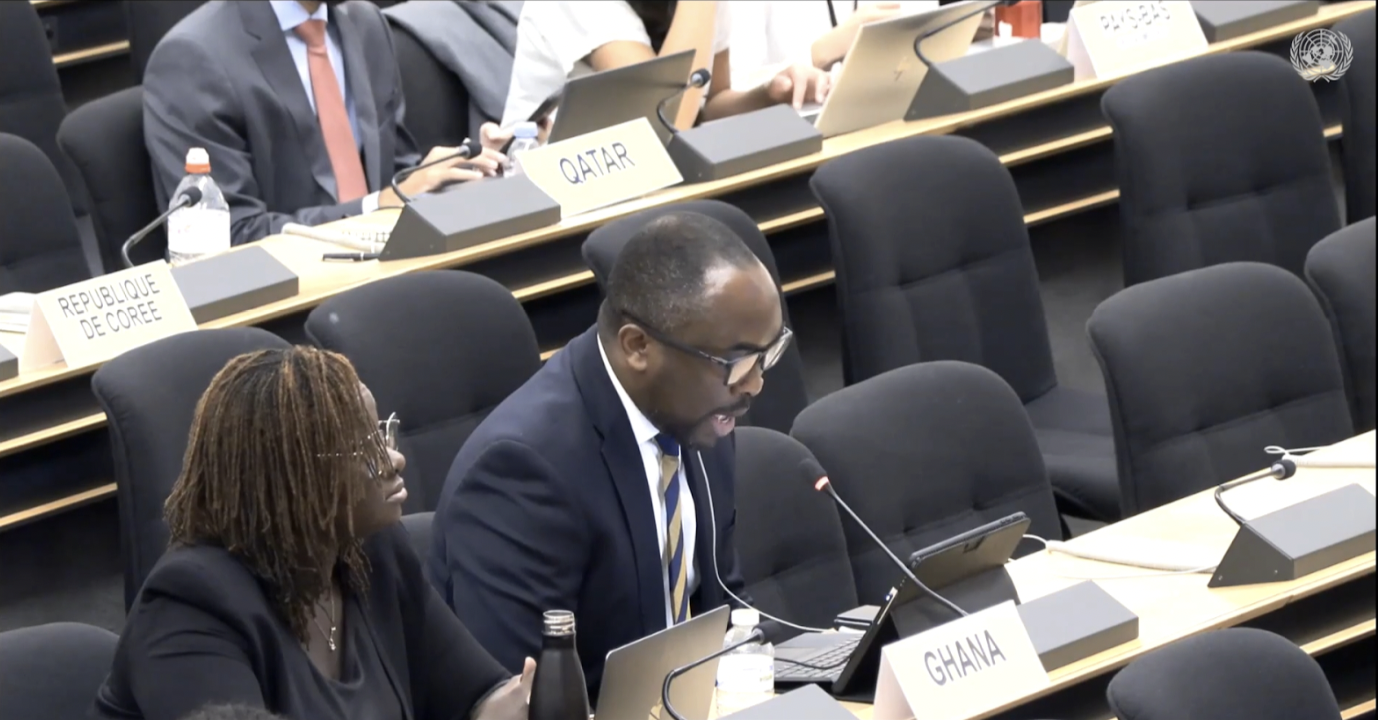
Ghana, on behalf of the African Group, delivered a statement stressing the imperative for global solidarity and the rapid, unconditional operationalisation of financial mechanisms to address loss and damage. They asserted that achieving domestic development objectives is gravely impeded by the unsustainable burden of climate debt, which must be acknowledged as a direct consequence of historical emissions responsibility. The Group demanded financial flows be delivered as predictable, grant-based financing to mitigate the asymmetric, foreseeable impacts that constitute a violation of intergenerational equity.
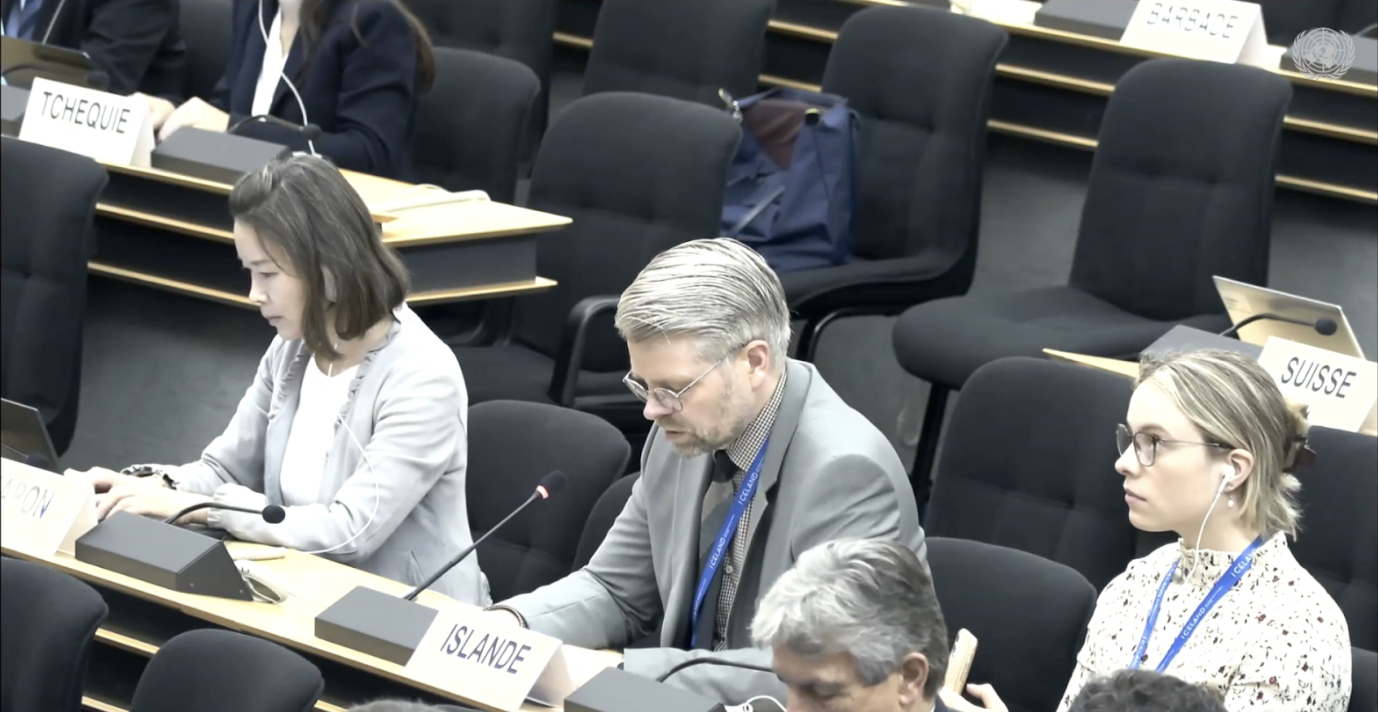
Iceland, speaking on behalf of a group of countries, unequivocally supported the immediate and full realisation of the right to a clean, healthy, and sustainable environment. The statement called for systemic governance reforms to mandate transparency and accountability, underscoring the necessity of unfettered participation for civil society and marginalised populations in policy design and oversight.
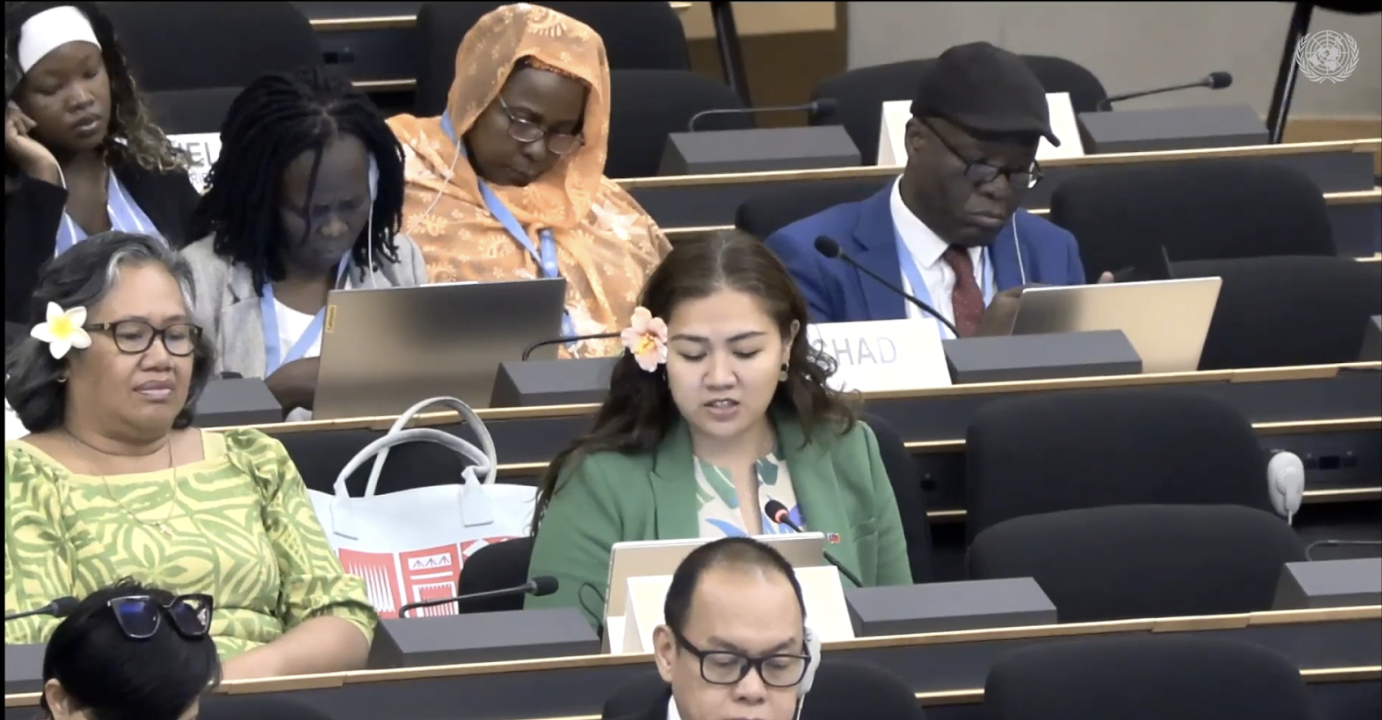
Samoa, on behalf of Small Island Developing States (SIDS), delivered a powerful intervention on the irreversible denial of fundamental rights stemming from the existential threat of climate change and sea-level rise. The delegation strongly demanded radical global mitigation efforts and the full, accessible capitalisation of the Loss and Damage fund, viewing it as a critical instrument of reparative justice for island communities.
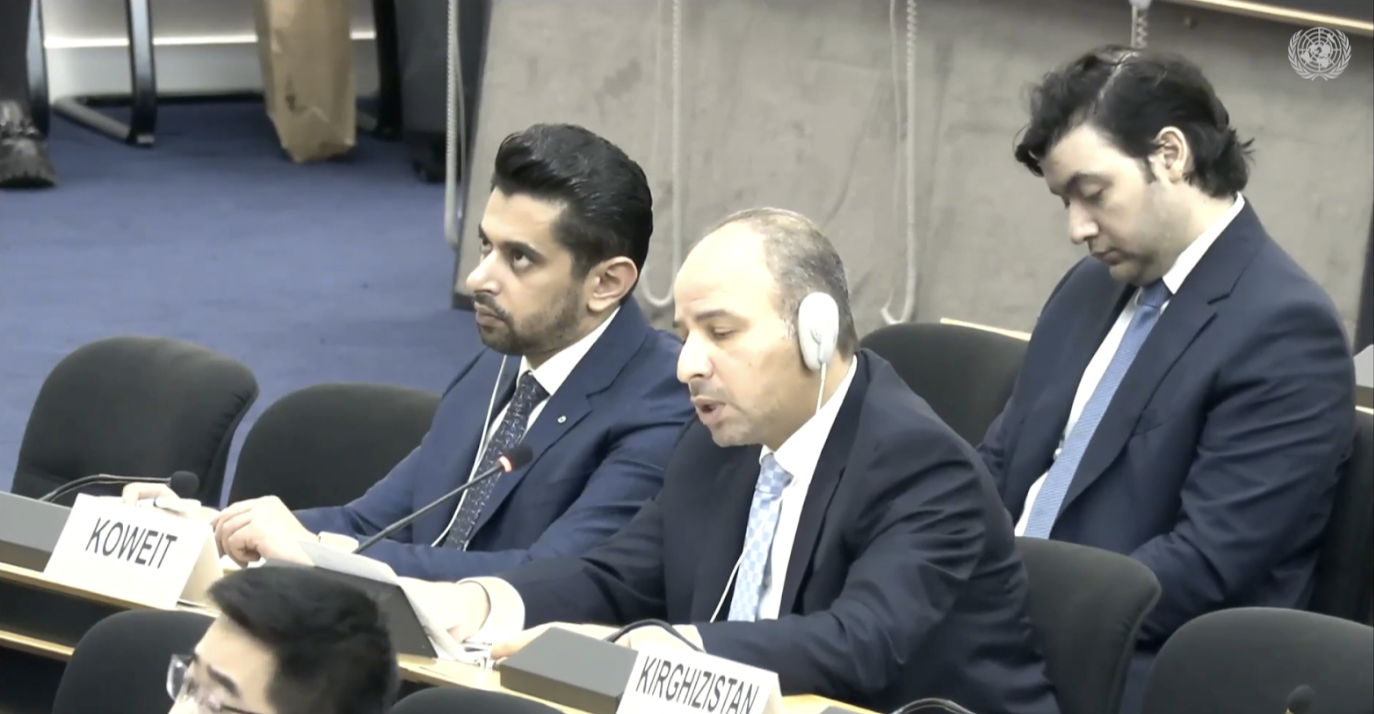
Kuwait, on behalf of the GCC, asserted the right of nations to define transition pathways based on national circumstances and energy security requirements. The delegation advocated for a technology-inclusive approach, including carbon capture, raising concerns among human rights organisations about the potential for such technologies to extend the lifespan of high-emissions infrastructure.
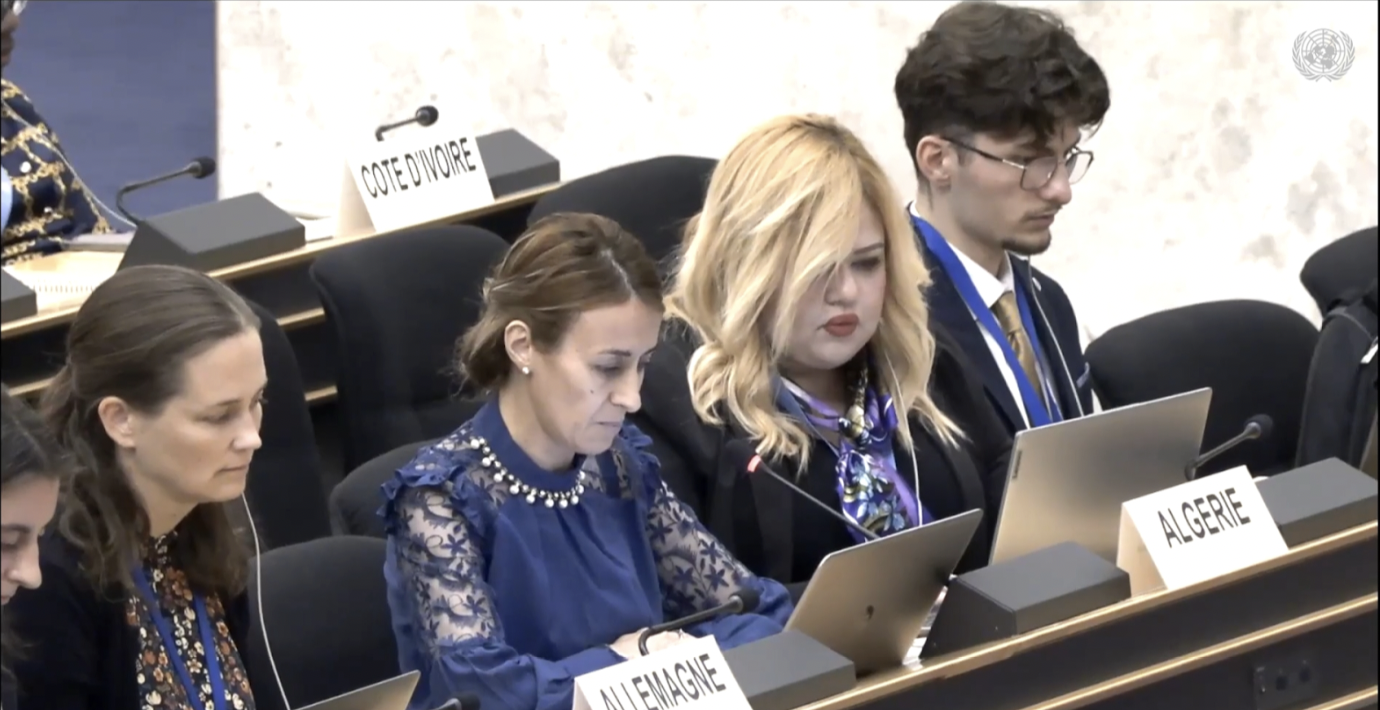
Algeria, on behalf of the Arab Group, adopted a strong position on the prerequisites for global justice. The delegation condemned the use of Unilateral Coercive Measures (UCMs), asserting that such measures constitute a significant structural barrier impeding developing States' access to essential green technology and financing required to fulfil their human rights obligations within the transition.
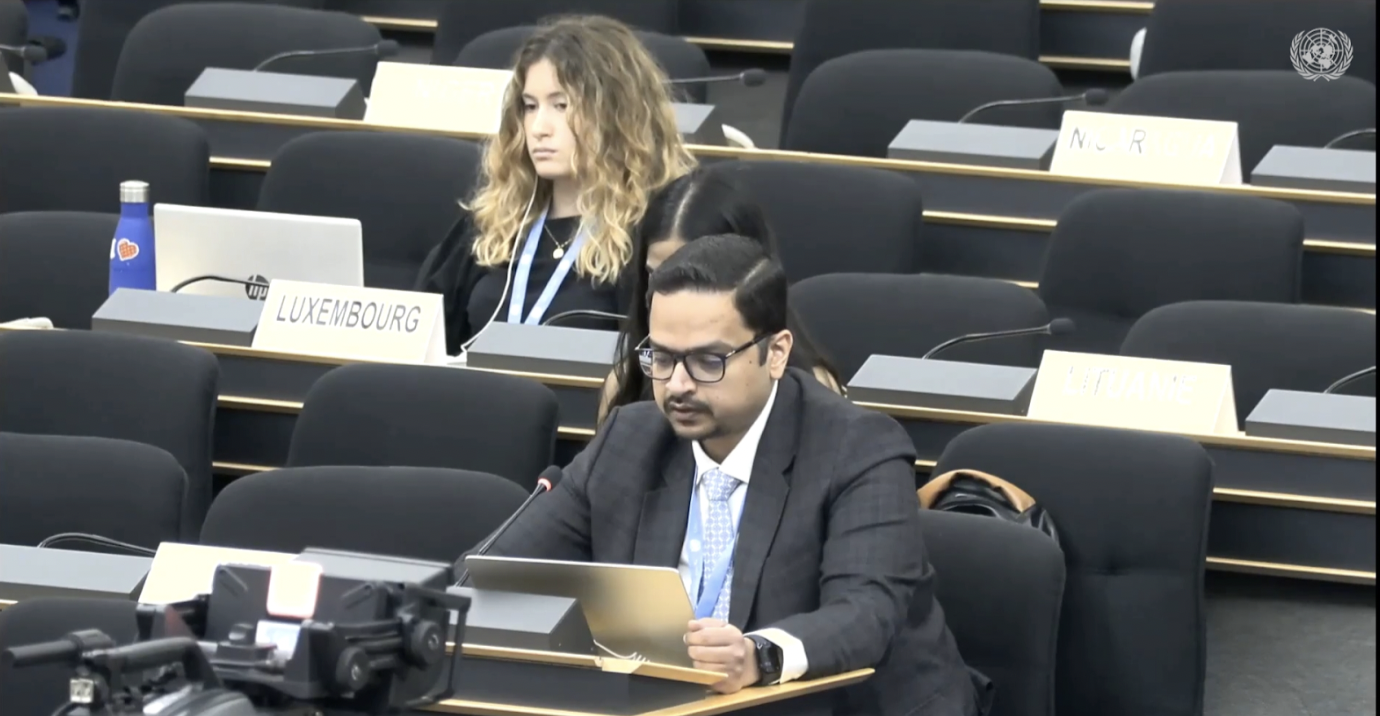
India strongly argued that its transition must remain primarily focused on meeting the human rights obligations of poverty eradication and guaranteeing universal energy access. The delegation stressed that burden-sharing must align with historical emissions responsibility and called for robust protective measures to prevent the marginalisation of millions in the informal sector during industrial restructuring.
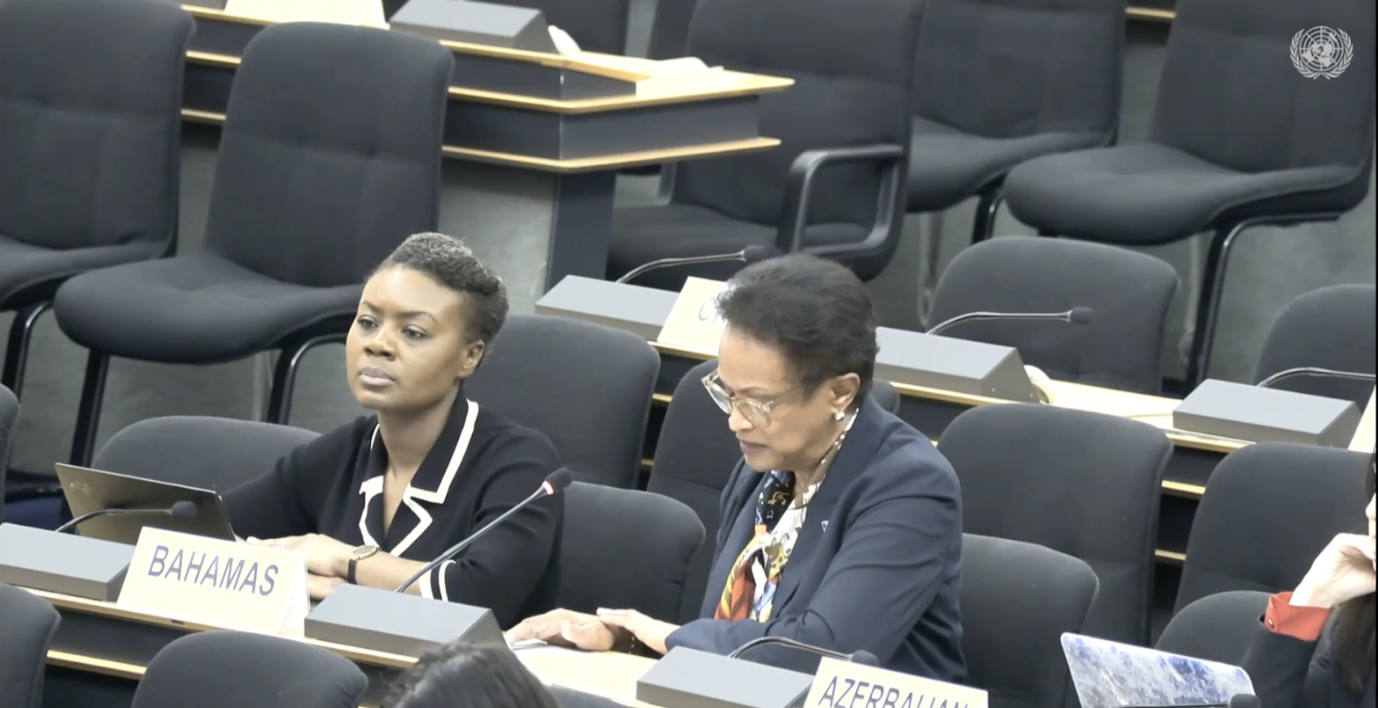
Bahamas, on behalf of the CARICOM group, highlighted the disproportionate impact of climate-induced disasters on small island developing economies. The delegation issued an urgent call for substantial debt cancellation and a fundamental reform of climate finance criteria to prioritise vulnerability, thus enabling critical investment in human rights-compliant adaptation and resilience infrastructure.
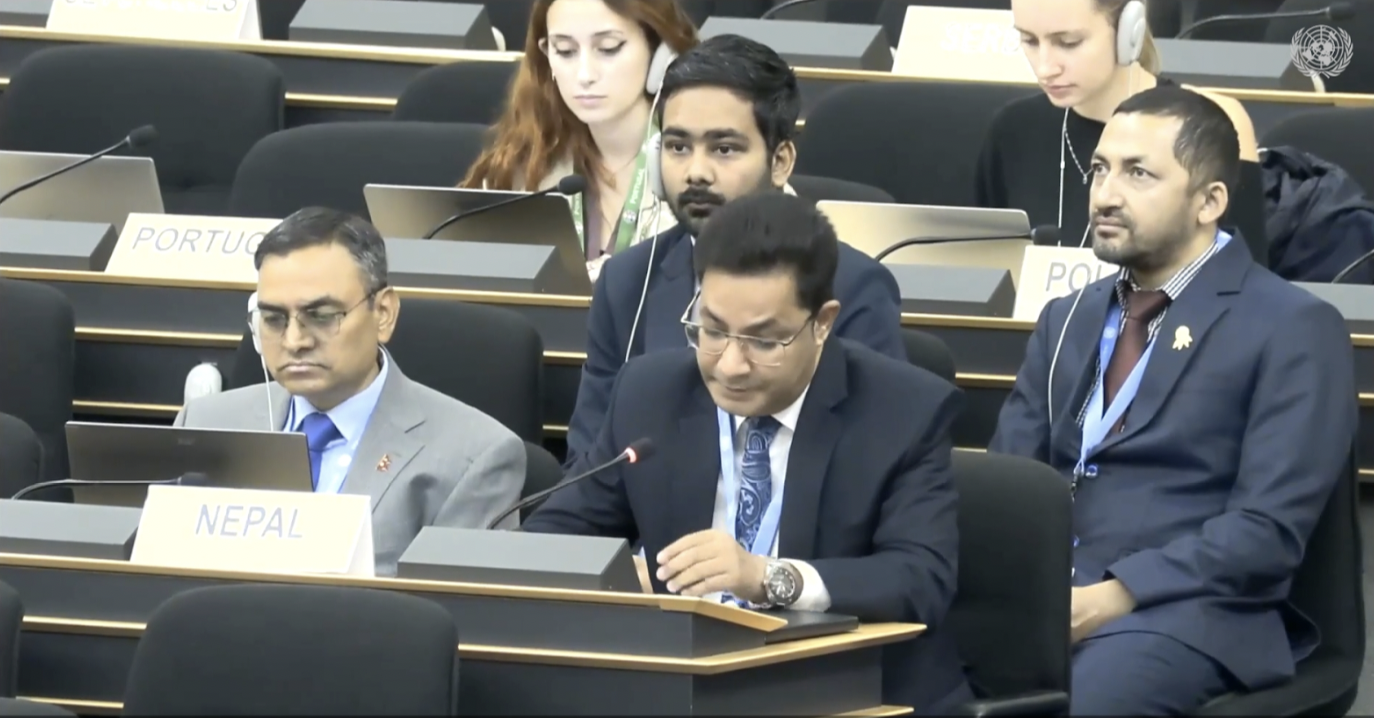
Nepal addressed the unique challenges faced by Mountainous Developing Countries, emphasising that catastrophic events like glacial lake outburst floods and landslides severely impact the constitutional right to life and right to an adequate standard of living for its citizens. The delegation urged the Council to recognise the systemic threat posed by Loss and Damage in mountain ecosystems, stressing the need for specialised international support for adaptation and disaster risk reduction to prevent the displacement of already marginalised communities.
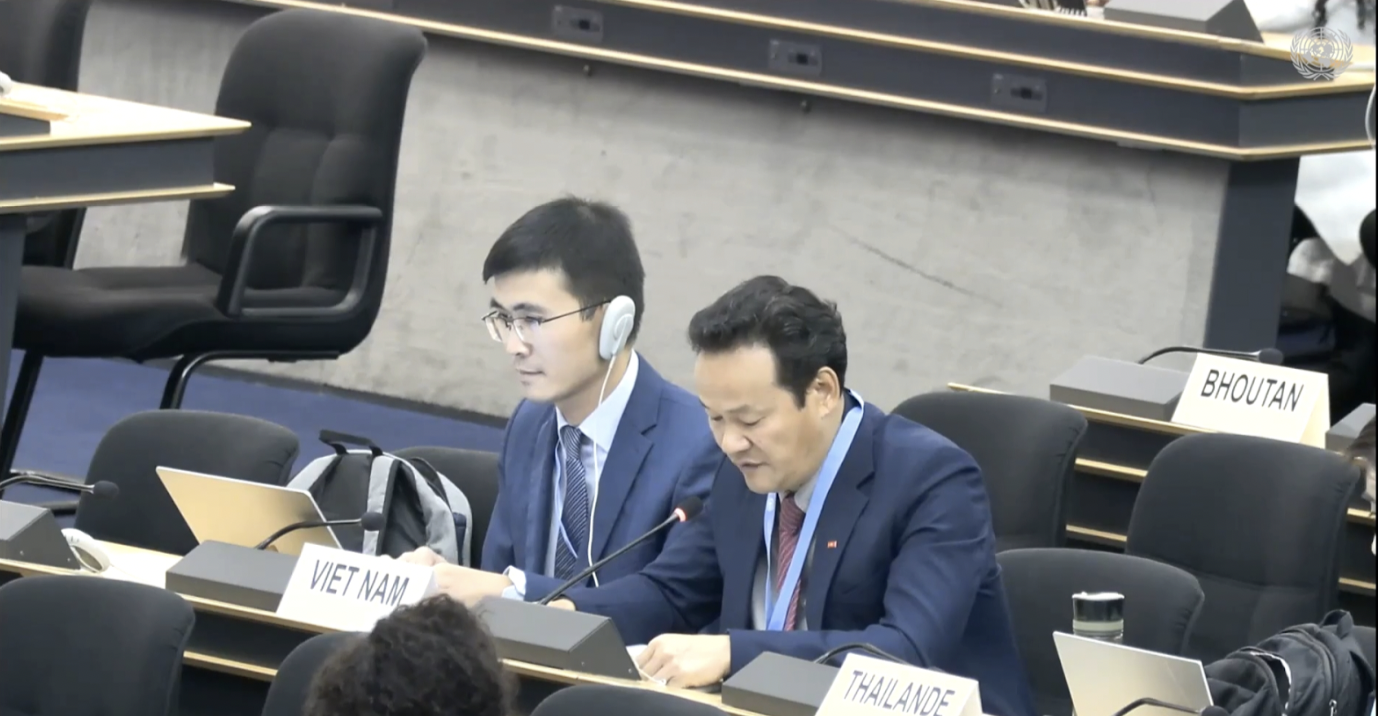
Viet Nam demonstrated national commitment to balancing development and climate goals, detailing efforts to protect highly vulnerable coastal and ethnic minority communities. The delegation specifically requested international support for green technology and vocational reskilling to address potential employment rights risks during the workforce transition.
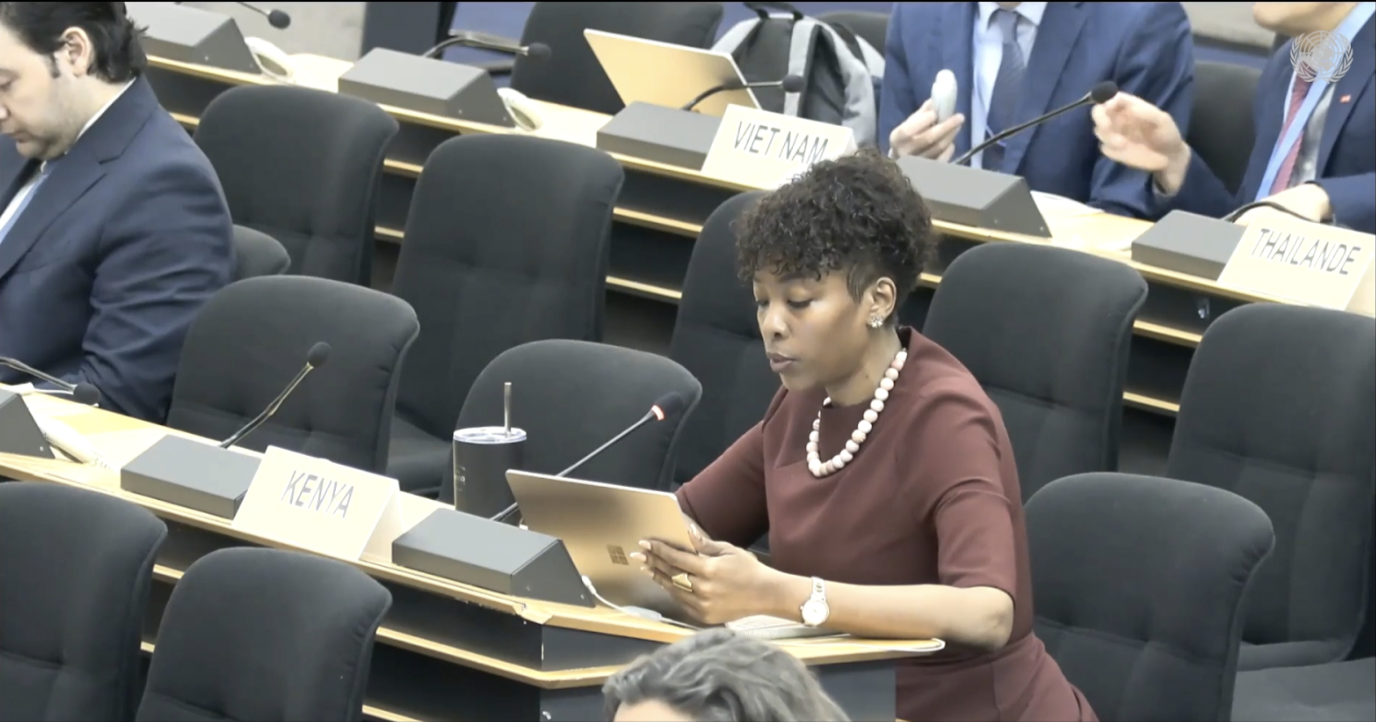
Kenya highlighted the specific and severe socio-economic impacts of climate change on vulnerable groups, particularly pastoralist communities and those dependent on rain-fed agriculture. The delegation stressed the imperative of integrating livelihood resilience and nature-based solutions into the national just transition framework and called for international assistance focused on protecting the rights of Indigenous Peoples and women, who bear a disproportionate burden of resource scarcity.
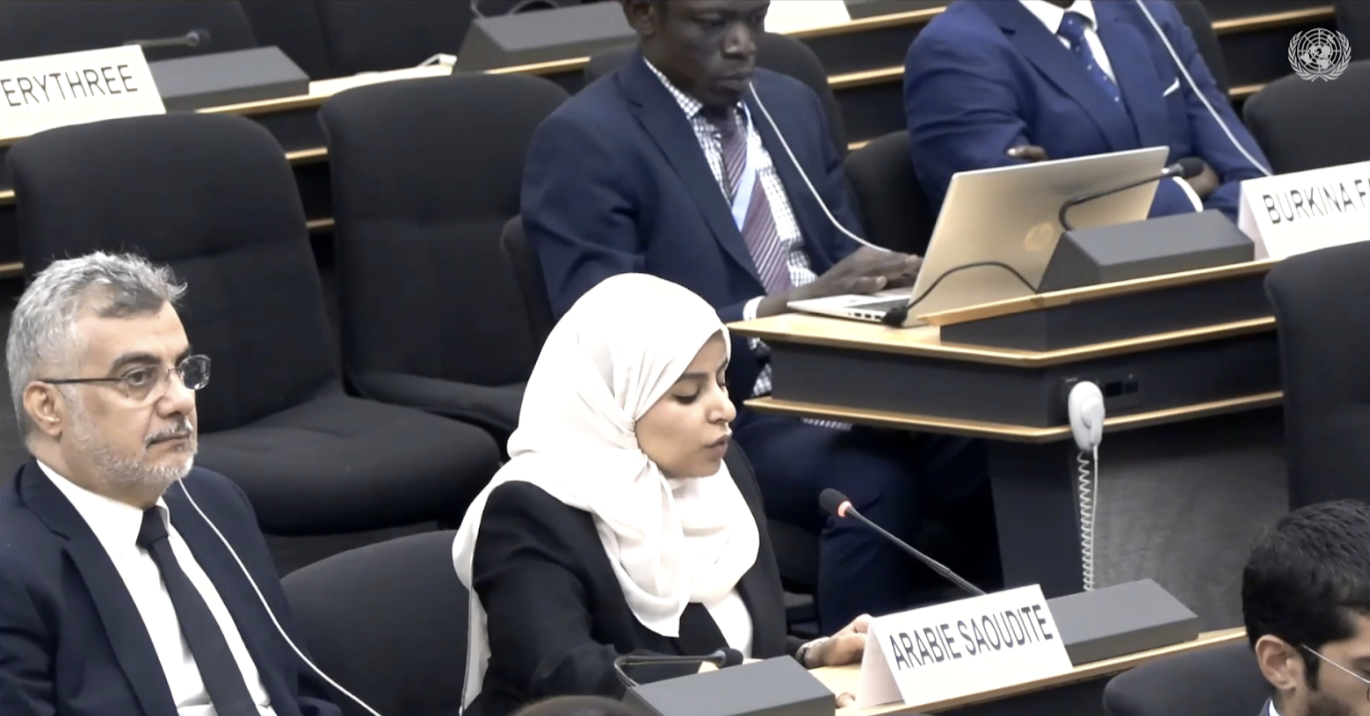
Saudi Arabia reinforced the emphasis on national sovereignty in defining transition pathways. The delegation championed the Circular Carbon Economy (CCE) framework as a viable, technology-inclusive approach to emissions mitigation that ensures energy security and economic diversification, arguing against prescriptive one-size-fits-all mandates that could compromise the Right to Development and the Right to Work of its population.
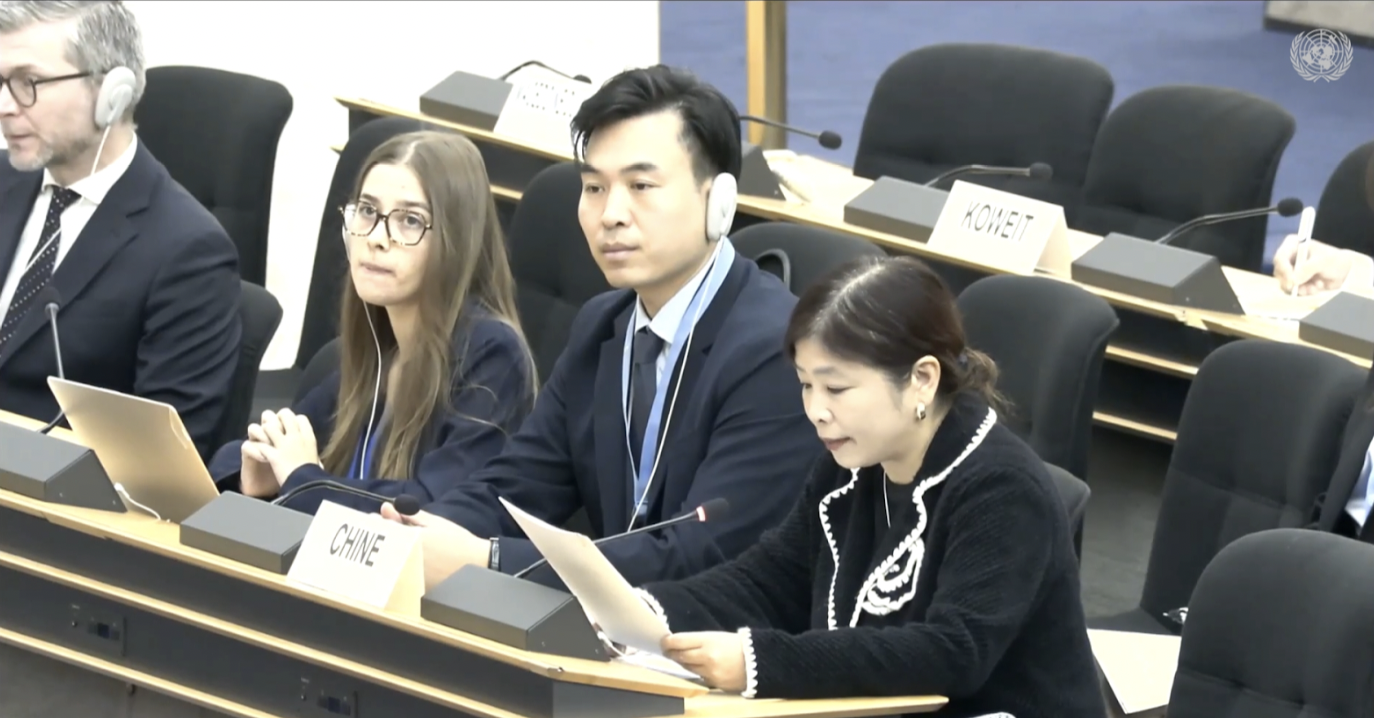
China reiterated the guiding function of the principle of Common but Differentiated Responsibilities and Respective Capabilities, insisting that developed nations must fulfil their historical obligations to provide substantial climate finance and technology transfer to the developing world. The delegation positioned its domestic climate action, which is focused on institutional innovation and poverty eradication, as a national practice for safeguarding human rights. Furthermore, China advocated for a focus on inclusive global cooperation, stressing the importance of national sovereignty and rejecting external interference in choosing national development and transition pathways.
Statements of National Human Rights Institutions (NHRIs) and Non-Governmental Organisations (NGOs)
NHRIs, speaking collectively, emphasised their essential role in monitoring and accountability. They demanded greater legislative mandates and resources to conduct effective, independent human rights due diligence monitoring and ensure the genuine and meaningful participation of rights-holders in policy processes.
NGOs focused their intervention on the systemic failure of corporate accountability. They demanded mandatory, legally binding human rights and environmental due diligence legislation to govern the entire supply chain of transition minerals and green technologies, explicitly warning against the risk of new cycles of exploitation.
Concluding remarks
In her final remarks, Ms. Hicks acknowledged the consensus on the urgency of the matter and the imperative for the transition to be human rights-based. She reiterated the report's recommendations concerning corporate accountability, the integration of vulnerable groups, and the need for transformative governance. The dialogue concluded with a strong emphasis on the necessity of moving swiftly from political commitment to concrete, rights-compliant legislative and financial action at all levels.
The Special Procedures mandate holder concluded the dialogue by commending the robust engagement demonstrated by State and non-State actors, signifying a crucial convergence of political will on the gravity of the crisis. This consensus emphatically solidified the position that the Just Transition is not a discretionary policy measure but a non-derogable, jus cogens-adjacent obligation flowing directly from existing international human rights instruments. The commitment to a just transition must adhere rigorously to the principle of non-retrogression regarding existing socio-economic protections and legal standards. The immediate strategic focus must now pivot to the policy operationalisation of the Secretary-General's recommendations, requiring the urgent integration of this rights-based framework into national legal and administrative structures. Key actions include the mandate for intensified inter-sessional work within the Council to develop precise indicators for substantive accountability, particularly concerning extraterritorial obligations. Furthermore, this dialogue provides the definitive rights-based platform for preparing Member States to ensure the Just Transition remains the central, actionable theme at the forthcoming negotiations, with a primary emphasis on securing genuine climate finance and addressing historical injustices.
Position of Geneva International Centre for Justice
Geneva International Centre for Justice (GICJ) asserts that the current global response to the climate crisis is plagued by systemic non-compliance and profound lacunae in the international legal architecture, evidenced by the persistent gulf between rhetorical commitments and the effective fulfilment of human rights obligations. The Secretary-General's report furnishes a critical roadmap, which duty bearers must immediately utilise to transition from policy voluntarism to an obligatory compliance regime comprehensive rights-based climate governance model ensuring adherence to jus cogens norms.
GICJ unequivocally calls upon States, as the primary duty bearers, to actualise the protective scope of enhanced due diligence, recognising and fully acting upon their extraterritorial obligations concerning both emissions and the deleterious impact of financial flows globally. This action must include an immediate, equitable, and comprehensive cessation of fossil fuel subsidies and production, especially by high-emitting industrialised nations, which must bear the primary responsibility for the climate debt owed to the Global South, a financial burden reflecting the scope of historical emissions responsibility.
Furthermore, GICJ stresses the non-negotiable imperative of restitutio in integrum (full restoration) and effective remedies. The explicit recognition that climate harms constitute an internationally wrongful act implies that affected populations are entitled to full reparations. We demand the establishment of accessible, non-discriminatory, and prompt accountability and redress mechanisms that ensure the right to an effective remedy. This includes ensuring that financing directed toward addressing non-economic loss and damage is new, predictable, and unconditional, channelled efficiently to benefit the most affected rights-holders, particularly those facing climate-induced displacement and livelihood disintegration.
Finally, GICJ demands genuine and meaningful free, prior, and informed consent and robust participation of affected populations, notably Indigenous Peoples, women, and youth, in all climate policy design and implementation processes. A Just Transition that fails to ensure the substantive empowerment and the secure enjoyment of procedural rights of rights-holders, and neglects to dismantle deeply embedded horizontal and vertical power asymmetries, risks becoming a vehicle for the replication of existing socio-economic inequalities. Securing climate justice is ultimately a matter of the enforcement of international human rights law through binding instruments.




